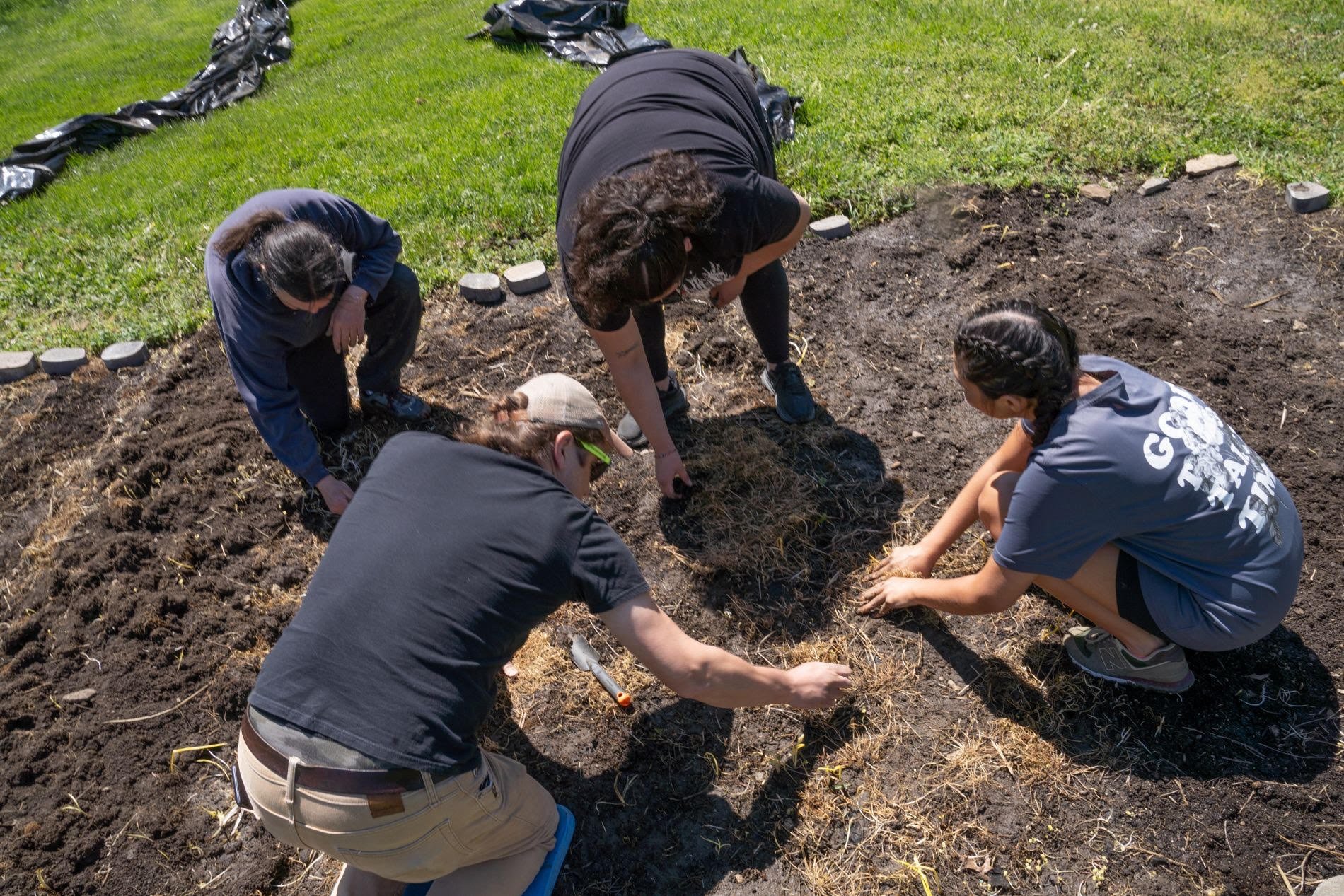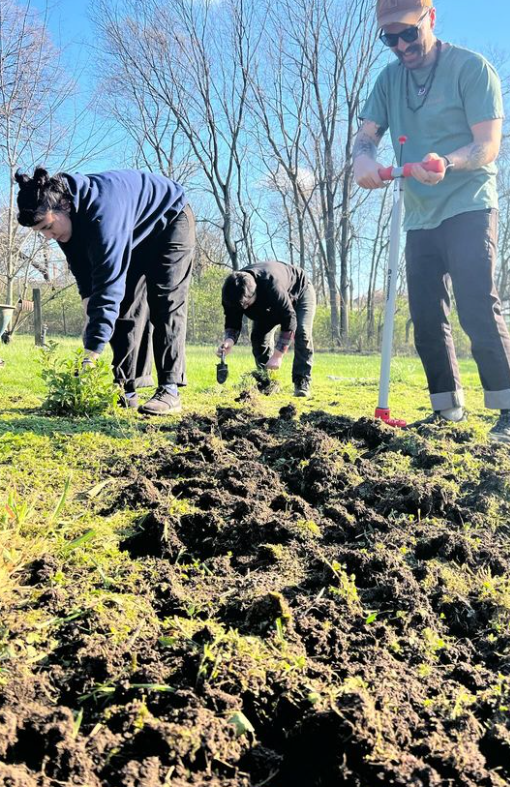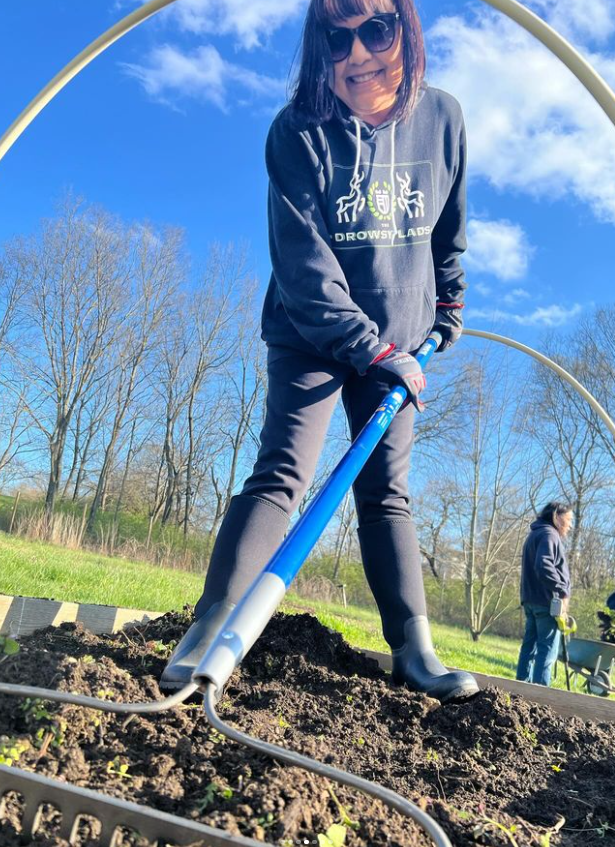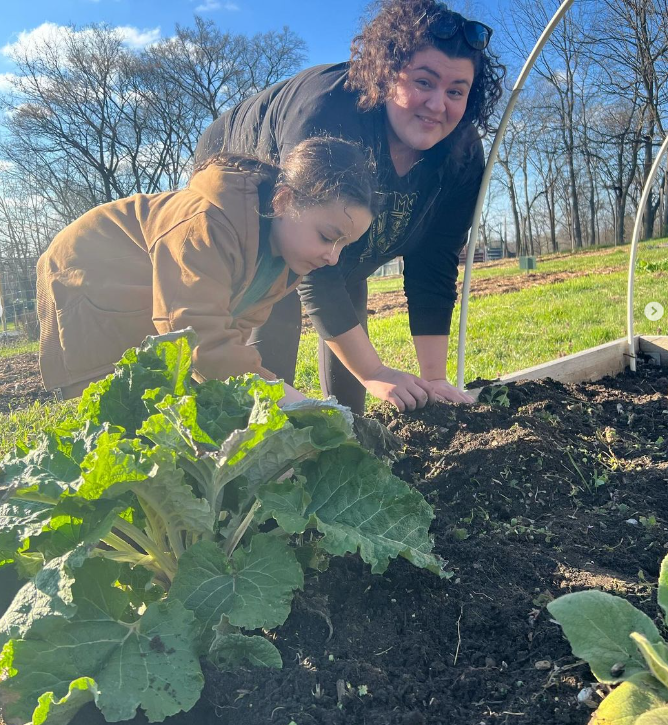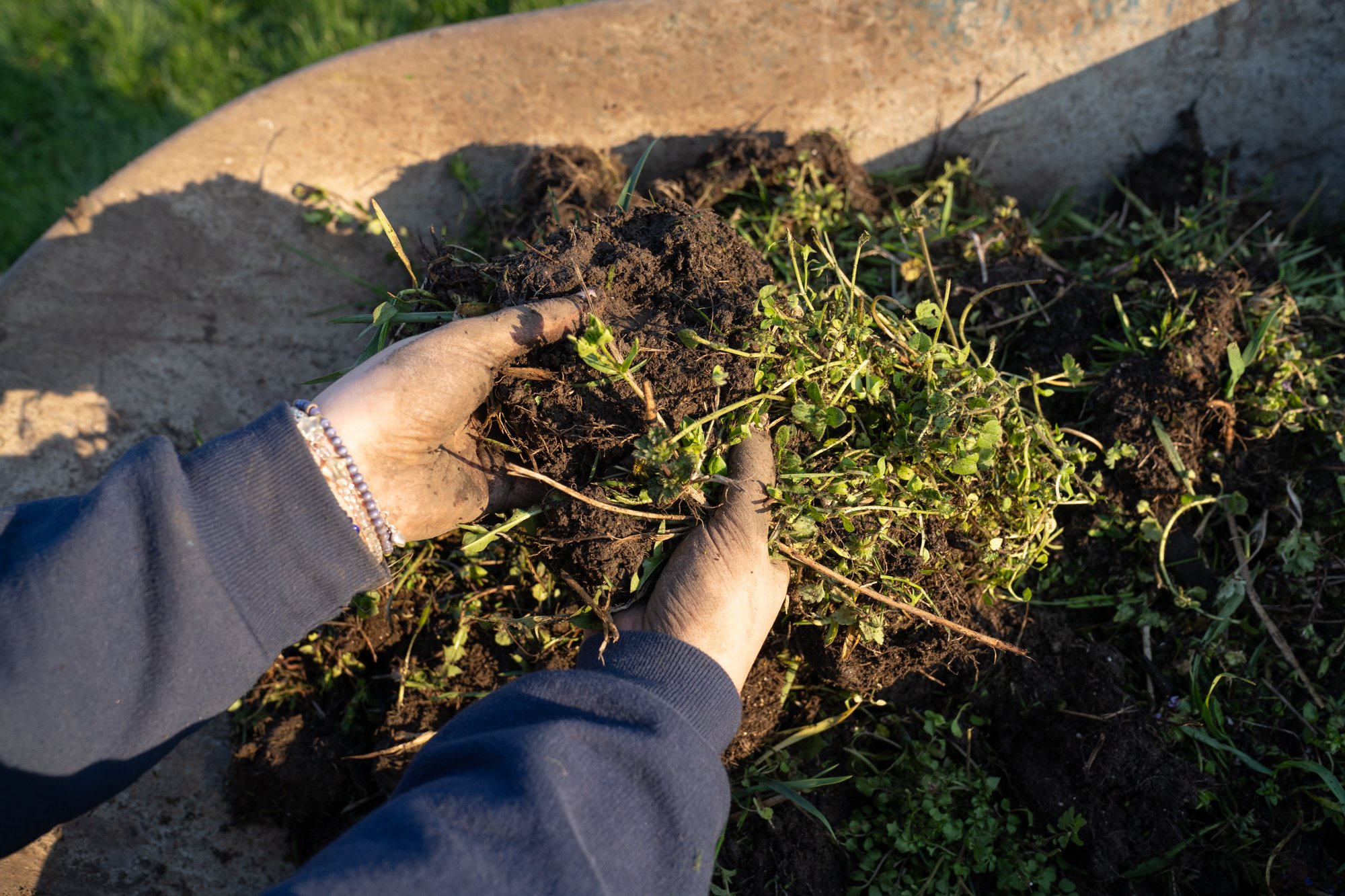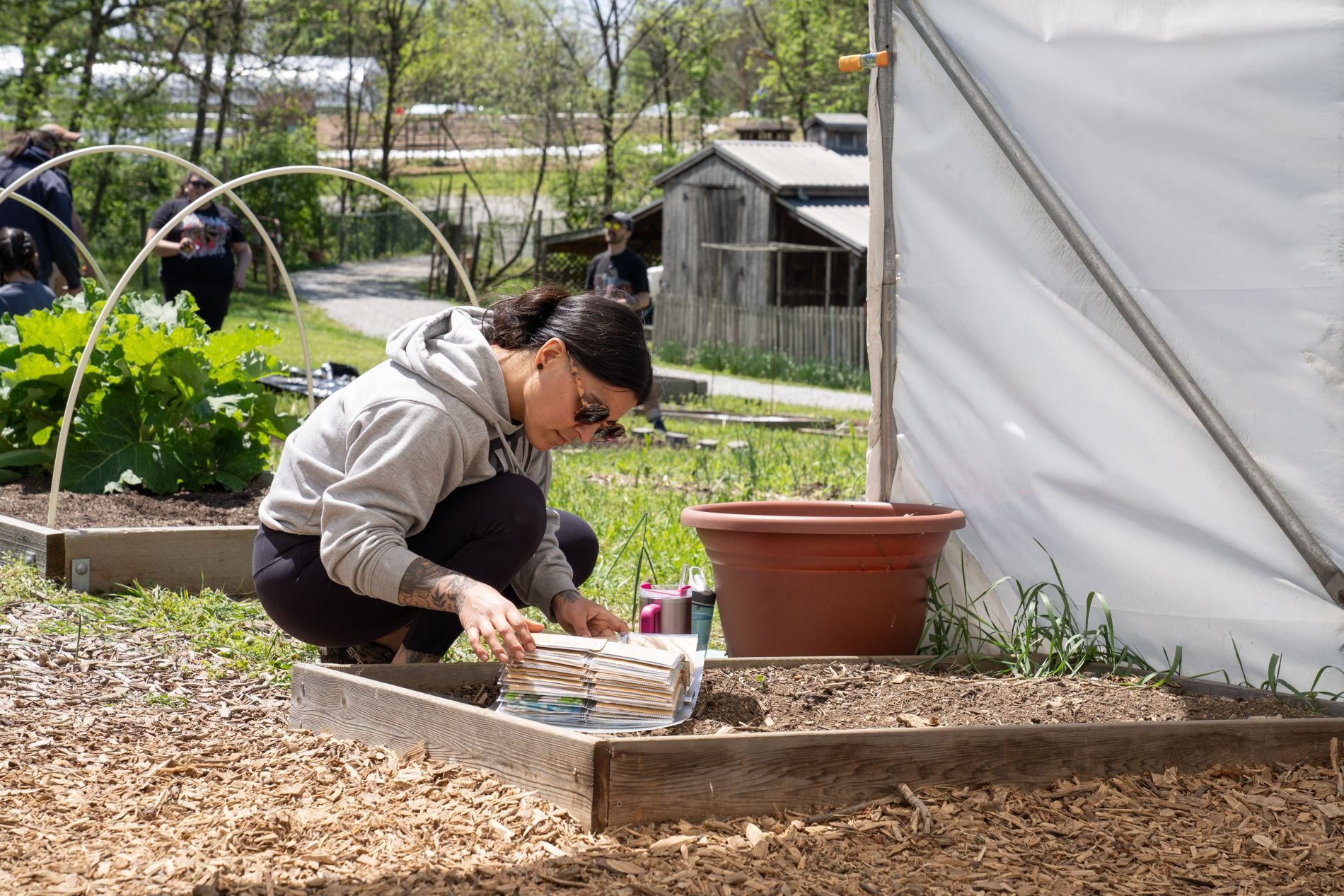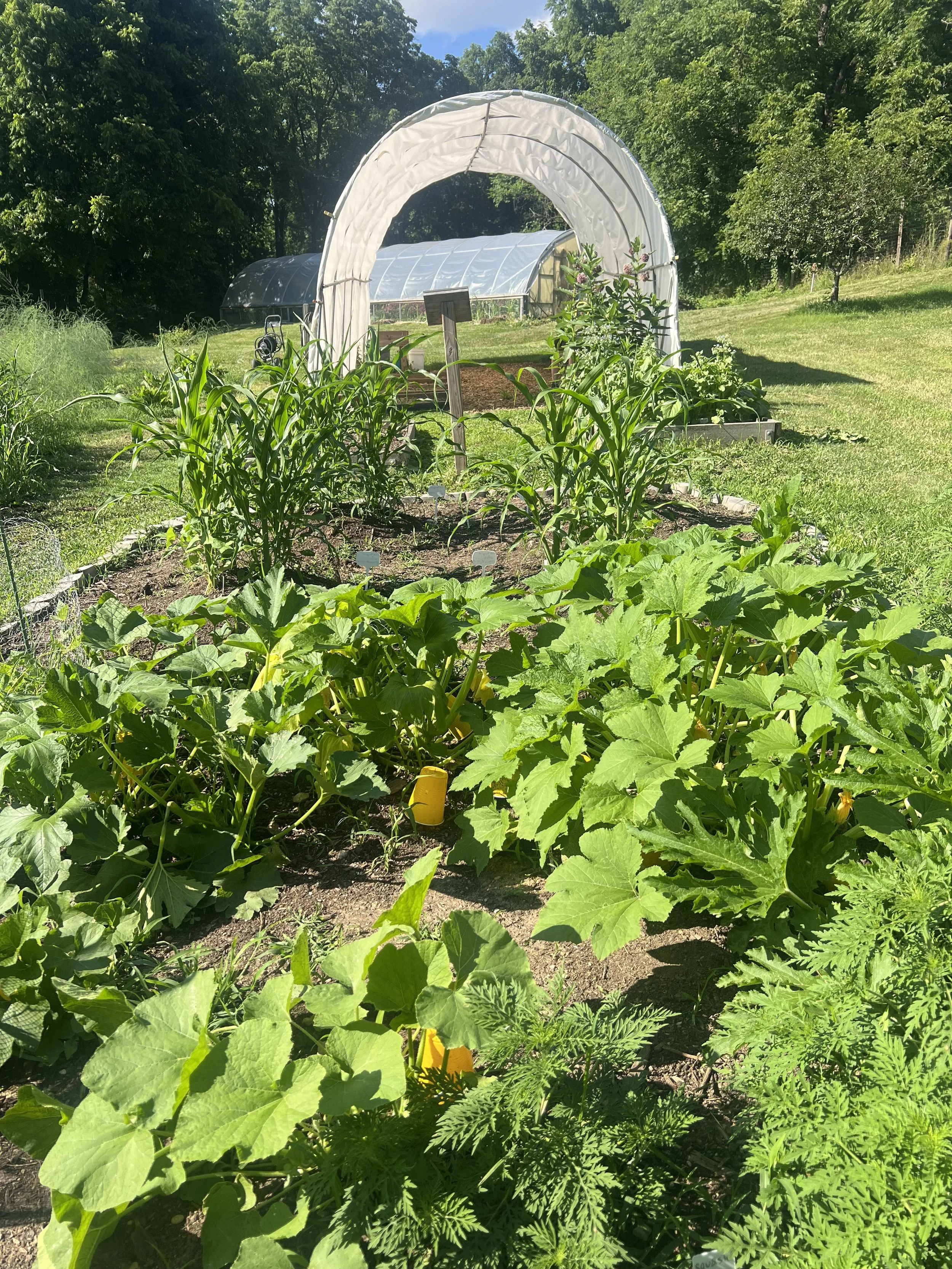The Urban Native Collective Garden Project
Cultivating transformation, Reclaiming land
The UNC urban garden project builds and honors our Indigenous ways of being, our knowledge, and our tradition of being in right relation with the land as our kin. While most Native Peoples live in urban areas*, growing Native plants, foods, and medicines in city spaces is a visible, quiet act of belonging. We work toward mutualism, not extraction. We tend to the relationships with our relatives: the land, plants, insects, soil, water, and the species. We grow not only for our community, but for all of the relatives.
“ We are committed to taking care of these lands - as they have cared for us by sharing Indigenous knowledge intergenerationally.”
Urban rematriation is part of a larger body of Indigenous climate science. Indigenous researchers, Tribal governments, and co-produced academic work have shown that land-based climate solutions governed by Indigenous Peoples are among the most effective pathways for stabilizing the climate, as seen in research by Robin Wall Kimmerer, Kyle Powys Whyte, and co-authored Indigenous fire governance studies such as the Karuk-led research. Peer-reviewed work on natural climate solutions shows that nature-based actions could supply close to one-third of the cost-effective global mitigation needed by 2030, and analysis by the World Resources Institute demonstrates that securing Indigenous and community land rights is essential to meeting that potential. Urban rematriation is one expression of these same principles inside cities. Urban greening is a low-tech and evidence-supported practice that cools neighborhoods, holds carbon in trees and soils, supports biodiversity, manages water, improves air quality, and restores Indigenous relationships to place, as shown in research from the US Forest Service and the US EPA on green infrastructure.
Cincinnati is home to Tens of thousands of Native People
This land, along with plant relatives, have been cultivated for many thousands of years.
Local Indigenous Peoples lack access to fresh foods, sacred seeds, to cultivate Indigenous land practices, and and land to plant sacred seeds.
Over the past few years, the Urban Native Collective has been working with partners in the Cincinnati area to reclaim urban green spaces to grow and distribute traditional foods and medicines for locals by building traditionally stewarded garden spaces. Our goal in creating these spaces is to increase access for all, reduce dependence on chemicals and commercial growing that does not honor the land, and to expand knowledge of traditional food ways.
Urban Native Collective leadership presented to the Midwest Regional Sustainability Summit in 2020, 2021, and 2025, which allowed our organization the opportunity to share how we are utilizing Indigenous Ecological Knowledge and Indigenous land stewardship practices to cultivate regenerative food systems. Within this traditional framework, our garden spaces focus on the interconnectedness of all of our relatives, including perennial native plants, birds, native pollinators, and other wildlife, in addition to providing sustainable and traditional foods for our community. By focusing on the wellbeing of our soil and all living things, Urban Native Collective’s garden spaces serve as a source of carbon offset, as well as a scalable model for agriculture which reduces the need for chemically managed agriculture.
“Working in a garden develops your relationship to the land. Our ancestors understood that gardening can transform our sense of scarcity and insecurity into feelings of abundance and control – something we all need these days.”
Native Americans have some of the highest rates of food insecurity, health problems, poverty, and more. With more than 70% of all Native Americans living off the reservations, we are in need of solutions- especially for urban Natives.
Cooking and serving communities from our gardens 2024
The UNC urban gardening project restores the Urban Native community of Cincinnati to physical well-being and a spiritual relationship to the Earth. Food Sovereignty is the right of Native Indigenous people to reclaim our own food and agricultural systems, as well as our right to access nutritious traditional foods that are produced using sustainable practices rooted in Indigenous values. An urban upbringing can mean our youth and community lose track of our old way of walking on this Earth. Our goal is to relearn this knowledge. In the process, the UNC urban gardens help the community reclaim food sovereignty – ready access to healthy, affordable, culturally appropriate food – and we meet this need by distributing produce and medicines.
The long-term goals of the project are to deliver large scale household shares of food and medicine to our Native community members and households, nurture and grow partnerships with community organizations, such as Black Power Initiative, Queen Mothers Market, and Cincinnati Sovereign Soil Collective, increase the number of green spaces and land our community stewards, and lead regenerative transformation within our regional landscape, collaborating with partners on a comprehensive climate action plan.
Our Urban Garden Sites:
Northside garden at cain
evendale garden at Gorman Heritage Farm
Grow with Us: Nourish the Community!
Join the Urban Native Collective in nurturing a greener, healthier future through our Urban Garden Project. We invite you to be a part of this transformative journey, where every seed sown is a step towards rekindling our spiritual relationship with Mother Earth and addressing critical issues like food sovereignty, environmental sustainability, and cultural preservation. Whether you are an experienced gardener, a supporter of Indigenous knowledge, or someone looking to make a positive impact in the community, your involvement is invaluable. Help us cultivate urban spaces that serve as living classrooms, providing access to fresh, culturally significant foods, and promoting ecological practices rooted in Indigenous wisdom. Together, we can create thriving gardens that not only feed bodies but also heal spirits, bringing us closer to realizing our vision of a regenerative and resilient community.


